Research
The Center for Food Allergy & Asthma Research is a leader in advancing the scientific understanding of childhood and adult food allergy in the United States. Our research quantifies the economic burden of food allergies and asthma and leads to innovative improvements in the quality and equity of care, interventions and policies for affected individuals.
Our Research Cores
Projects & Studies
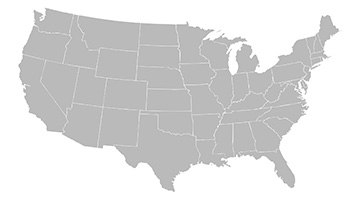
Prevalence, Severity and Distribution of Food Allergy in the United States
This study estimated the national prevalence of food allergy among a representative sample of over 40,000 households. Additionally, the survey inquired information on food allergic reaction symptomology, severity and management.
In November 2018, we published data on food allergy among the pediatric population in Pediatrics, and in January 2019, we published data on adult food allergy in JAMA Network Open.
Email jialing.jiang@northwestern.edu for more details.
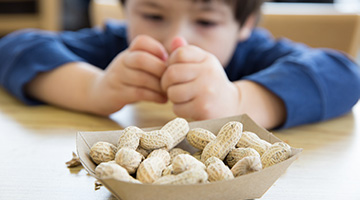
Intervention to Reduce Early Peanut Allergy in Children
Recipient of National Institutes of Health's U01 Grant Award
Through the iREACH study, we will partner with 35 clinics in Illinois to implement a clinical decision support tool in clinicians electronic health records to assist them in determining best practices surrounding early peanut introduction.
The iREACH study aims to improve clinician adherence to early introduction of peanut guideline and decrease the incidence of peanut allergy in children.
Email jialing.jiang@northwestern.edu for more details.
Food Allergy Outcomes Related to White and African American Racial Differences
Recipient of National Institutes of Health's R01 Grant Award
This study will develop a prospective longitudinal cohort to systematically investigate differences among Black, white and Latino children with food allergy.
We are enrolling and following these cohorts to determine differences in food allergy-related clinical and psychosocial outcomes, the ways and mechanisms through which their allergies manifest themselves and their management practices.
Email pamela.newmark@northwestern.edu for more details.

Building Informatics Tools for the Identification of Food Allergy Related Morbidity and Health Care Use using Electronic Health Records
This study utilizes natural language processing to more accurately identify patients with food allergy through their electronic health record data from a cohort of patients seen at general pediatric and allergy clinics.
Email l-bilaver@northwestern.edu for more details.

Understanding Diagnosis and Management of Childhood Food Allergy Among Medicaid Enrolled Children
This study analyzes the patterns of diagnosis and treatment among children with food allergy insured through the Medicaid program. Using this data, we will analyze one year of Medicaid claims to describe the prevalence of food allergy and indicators of quality care adherent to clinical guidelines. We also will analyze the county-level hot spot maps to advance our understanding of the geographic disparities in care.
Email l-bilaver@northwestern.edu for more details.

Understanding Precautionary Allergen Labeling Preferences among Food Allergy Stakeholders
The goal of this study is to better understand how to communicate the risk of potential presence of allergens in products that could have cross-contact from shared manufacturing equipment. By surveying consumers affected by food allergy, we hope to gain information about precautionary allergen labeling preferences that will help to inform future U.S. Food and Drug Administration labeling policies.
Email madeleine.kanaley@northwestern.edu for more details.

The Food Allergy Management in Low Income Youth Study
This study aims to better understand the barriers to food allergy management among low-income families living with food allergies. After interviewing a number of families living with food allergies about their experiences, we created a clear and helpful “Food Allergy Passport” to aid in the management of food allergy based on their noted barriers (e.g., keeping track of medications, preparing for the doctor, reading labels and developing coping strategies.)
Visit our community resources page to view the passport and workbook.
Email justin.zaslavsky@northwestern.edu for more details.

Meeting the Psychosocial Needs of Children and Families with Life-Threatening Food Allergies
The goal of this study is to interview pediatric allergists and parents of food-allergic children from the Chicago area to assess the mental health needs of and appropriate interventions for children and families affected by food allergies.
Email lisa.lombard@northwestern.edu for more details.
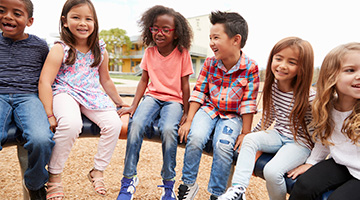
The Development and Evaluation of Educational Food Allergy Videos in Early Childhood
This study develops and evaluates three videos to educate young children, parents, caregivers and early-childhood professionals on food allergies.
Visit our Early Childhood Food Allergies to view the videos.
Email sarah.valaika@northwestern.edu for more details.

Food Allergy Peer-to-Peer Educational Videos
CFAAR created three peer-to-peer food allergy educational videos for elementary, middle and high school students using input from children, adolescents and parents. We then evaluated the videos to determine their effectiveness in changing student food allergy knowledge, beliefs and attitudes. The videos are available for free in a USB format and have been distributed nationwide.
Visit our School-Aged Food Allergies to view these videos and associated resources.
Email cfaar@northwestern.edu for more details.

Improving Food Allergy Preparedness on College Campuses1
The goal of this study is to better understand the needs of college students with food allergy and to identify areas for improvement.
Based on the results of the survey, we will develop a food allergy educational video that students can utilize during their first-year orientation. The hope is to have a short, informative and relatable video that is easily incorporated in colleges nationwide to spread awareness and help prompt the conversation among students.
Email madeleine.kanaley@northwestern.edu for more details.
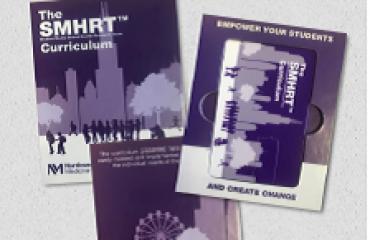
Student Media-Based Health Research Team
SMHRT is a comprehensive curriculum that can be shared with educators, public health practitioners and community members to be utilized in schools to help empower students of any age to research and understand health conditions that affect their communities. The curriculum gives teachers and students tools to create community-level change through building interventions. The SMHRT curriculum is free in USB format for any school who wishes to utilize it and have been distributed nationwide.
Any chronic health condition may be studied and interventions may include PSAs, posters, fact sheets and musical performances.
Email kathy.boon@northwestern.edu for more details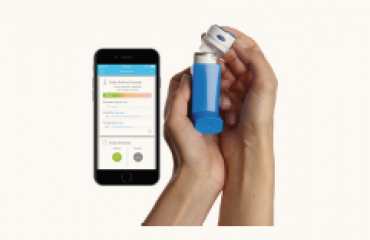
Improving Technology Assisted Recording of Asthma Control in Children
The goal of this randomized clinical control trial is to determine whether a sensor-enabled, clinically-integrated, mobile health asthma program can improve overall asthma control and management among children with moderate-to-severe asthma. Participants received comprehensive asthma education, optional environmental allergen testing and quarterly surveys to complete. The intervention group uses a sensor placed on their asthma inhalers to track medication usage.
Read about this clinical trial and patients' experience with the technology.
Email Kathy.boon@northwestern.edu for more details.

Training the Next Generation through CFAARs Summer Internship Program
Each year, we invite high school, undergraduate and graduate students to join us for a summer of public health research. Students learn the basics of research, attend weekly didactic sessions on relevant topics and assist the CFAAR research team with all of their ongoing studies.
Visit the community outreach page for more details.
If you are interested in interning with CFAAR, email kailin.potter@northwestern.edu for more details!

CPS-Northwestern Student Health Leaders Program
This program consists of workshops for Chicago Public Schools high school students focused on professional and personal development and improving health awareness and education in their communities. Students created PSAs and posters on health topics most important to them to share with their peers and schools.
Visit studenthealthleaders.weebly.com to learn more about the program or watch a video about the program here.
Email madeleine.kanaley@northwestern.edu for more details.

FARE DATA Study
This study will create a food allergy “data commons” to make it possible for researchers worldwide to share data and collaborate on one platform. CFAAR is partnering with Food Allergy Research & Education on this project to help answer critical questions around:
- The development and progression of food allergies.
- Severity of symptoms.
- Mechanisms that promote tolerance, including treatments and prevention.
Email kathy.boon@northwestern.edu for more details.

Food Allergy Registry Dissemination Project
CFAAR is partnering with Food Allergy Research & Education (FARE) to expand our current understanding of food allergy by analyzing patient-reported data from FARE'S National Patient Registry.
This project will explore patient reactions, comorbidities, family history of food allergy, outgrowing food allergy and more.
Email l-bilaver@northwestern.edu for more details.

National Caregiver Survey
Email waheeda.samady@northwestern.edu for more details.
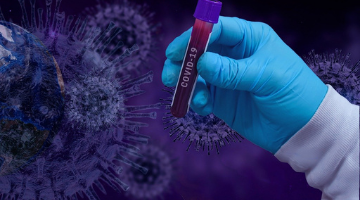
HEROS
Human Epidemiology and Response to SARS-CoV-2 (HEROS) is a study funded by the National Institutes of Health (NIH) to determine the rate of novel coronavirus infection in children and their family members in the United States. HEROS will also help determine what percentage of children infected with SARS-CoV-2 develop symptoms of the disease. Additionally, the HEROS study will examine if rates of SARS-CoV-2 infection differ between children who have asthma or other allergic conditions and children who do not.
Read more about this study on the NIH website.
Email pamela.newmark@northwestern.edu for more details.

OIT QoL Study
This study seeks information from food allergy patients regarding the quality of life domains most relevant to food allergen immunotherapy (IT). Eventually, these data will be used to develop a patient-centered survey instrument assessing quality of life among IT patients and other key stakeholders.
Email christopher.warren@northwestern.edu for more details.

Food Equality Initiative Study
The goal of this study is to increase access to medically necessary foods for food-insecure people with food allergies and other food related conditions. We hope to show that this model of providing food effectively increases self-efficacy for food security.
Email l-bilaver@northwestern.edu for more details.